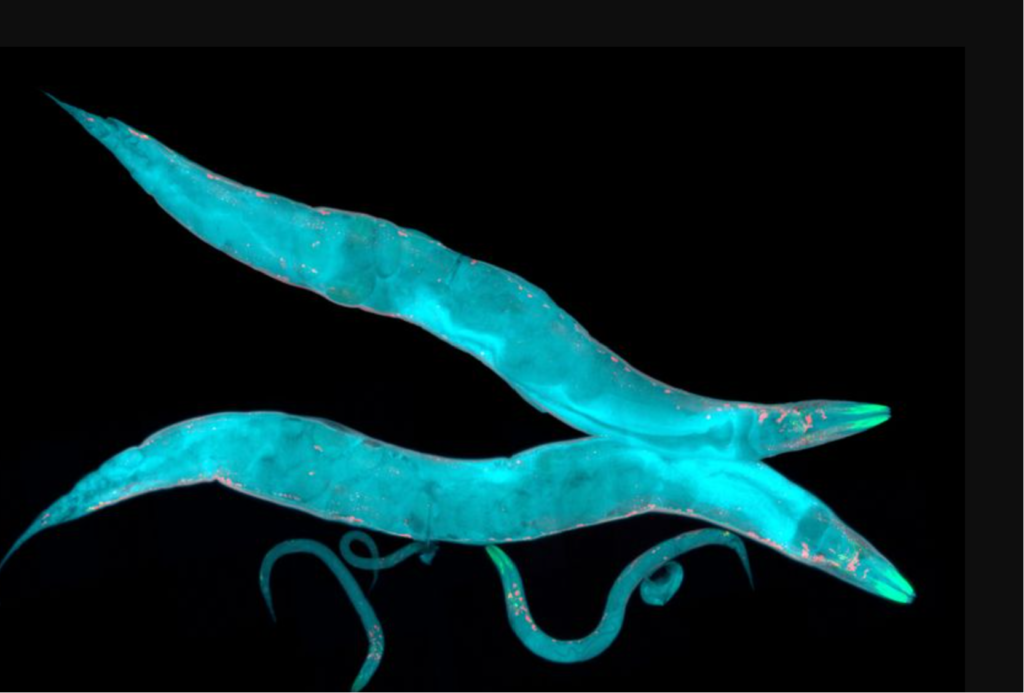Introduction : Emotions
In a groundbreaking exploration of the microscopic world, scientists have uncovered intriguing evidence suggesting that worms, typically perceived as simple organisms, may possess a form of rudimentary “emotions.” This discovery challenges traditional views of invertebrates and opens a window into the complex inner lives of organisms long considered to operate purely on instinct. In this article, we delve into the research that hints at the emotional experiences of worms and the implications it holds for our understanding of the animal kingdom.
Redefining Sentience in the Microscopic Realm
- Complex Behavior Beyond Instinct:While worms are renowned for their seemingly straightforward behaviors, the latest research suggests a more nuanced reality. Observations reveal behaviors that extend beyond mere instinct, hinting at a level of complexity that raises questions about the nature of sentience in these tiny organisms.
- Distinct Responses to Stimuli:The study points to distinct responses exhibited by worms when exposed to various stimuli. These responses go beyond simple reflexes, indicating a level of sensitivity that might be indicative of a form of emotional experience.
Evidence of “Emotional” Responses
Also read : Heart Health Unveiled: New Research Highlights The Dangers Of Prolonged Sitting

Emotions
- Preference and Aversion:Experimental setups demonstrate that worms show preferences and aversions to certain environments or conditions. This nuanced response suggests an ability to experience positive or negative states in a manner reminiscent of emotional responses.
- Learning and Memory:Worms display an ability to learn and remember specific cues, adapting their behavior based on prior experiences. This capacity for learning hints at a cognitive process that goes beyond basic instincts, implying a form of emotional memory.
Neurological Insights: The Role of Neuropeptides

Emotions
- Neuropeptides and Emotional Signaling:Researchers have identified the presence of neuropeptides in worms, signaling pathways associated with emotional responses in more complex organisms. This discovery provides a potential neurological basis for the observed emotional-like behaviors in these microscopic creatures.
- Evolutionary Implications:The existence of emotional signaling pathways in worms suggests that these mechanisms may have deeper evolutionary roots than previously thought. Understanding the evolution of emotional responses could provide insights into the development of sentience across the animal kingdom.
Ethical Considerations and Future Research

- Ethical Implications of Sentient Behavior:The acknowledgment of potentially emotional experiences in worms raises ethical considerations regarding the treatment and use of these organisms in scientific research. Researchers and policymakers must navigate these ethical waters as they explore the implications of worm sentience.
- Future Avenues of Research:The discovery opens new avenues for research into the emotional lives of other seemingly simple organisms. Understanding the breadth of emotional experiences across different species can contribute to our broader understanding of sentience in the natural world.
Conclusion: A Paradigm Shift in Worm Science

The revelation that worms may possess emotions challenges our preconceived notions of simplicity in the animal kingdom. As scientists delve further into the emotional lives of these microscopic creatures, the paradigm of worm science undergoes a profound shift. This discovery prompts us to reconsider the depth of sentience in the natural world, reminding us that even the tiniest organisms may harbor a rich internal landscape that goes beyond mere instinct.
Frequently Asked Questions (FAQ) – Worms and the Discovery of Potential “Emotions”
- What led scientists to believe that worms may have emotions?Scientists observed behaviors in worms that go beyond simple instinctual responses. The worms displayed distinct preferences, aversions, and the ability to learn and remember specific cues, suggesting a level of complexity that hints at potential emotional experiences.
- How do worms show preferences and aversions in experiments?Experimental setups involved exposing worms to different environments or conditions. Observations revealed that worms displayed preferences for certain conditions and aversions to others, indicating a nuanced response that goes beyond basic instinct.
- What is the role of neuropeptides in the potential emotional experiences of worms?Neuropeptides, identified in worms, are signaling molecules associated with emotional responses in more complex organisms. Their presence suggests a potential neurological basis for the observed emotional-like behaviors in worms.
- Why is the discovery of potential emotions in worms significant?The discovery challenges traditional views of invertebrates and suggests that even simple organisms may possess a form of sentience that includes emotional experiences. It prompts a reevaluation of our understanding of the internal lives of creatures previously considered to operate purely on instinct.
- What are the ethical considerations associated with the acknowledgment of potential emotions in worms?The acknowledgment of potential emotions in worms raises ethical considerations regarding the treatment and use of these organisms in scientific research. Researchers and policymakers must navigate these ethical waters as they explore the implications of worm sentience.
- How does the discovery impact the field of worm science and animal behavior research?The discovery prompts a paradigm shift in worm science, challenging the perception of simplicity in the animal kingdom. It opens new avenues for research into the emotional lives of other seemingly simple organisms and contributes to a broader understanding of sentience in the natural world.
- What are the evolutionary implications of the presence of emotional signaling pathways in worms?The presence of emotional signaling pathways in worms suggests that these mechanisms may have deeper evolutionary roots than previously thought. Understanding the evolution of emotional responses can provide insights into the development of sentience across the animal kingdom.
- What are the future avenues of research following this discovery?The discovery opens new avenues for research into the emotional lives of various organisms. Researchers may explore the emotional experiences of other seemingly simple creatures, contributing to a deeper understanding of sentience and behavior in the natural world
Also read : How To Unlock The 90% Of Your Brain That You Never Use




































